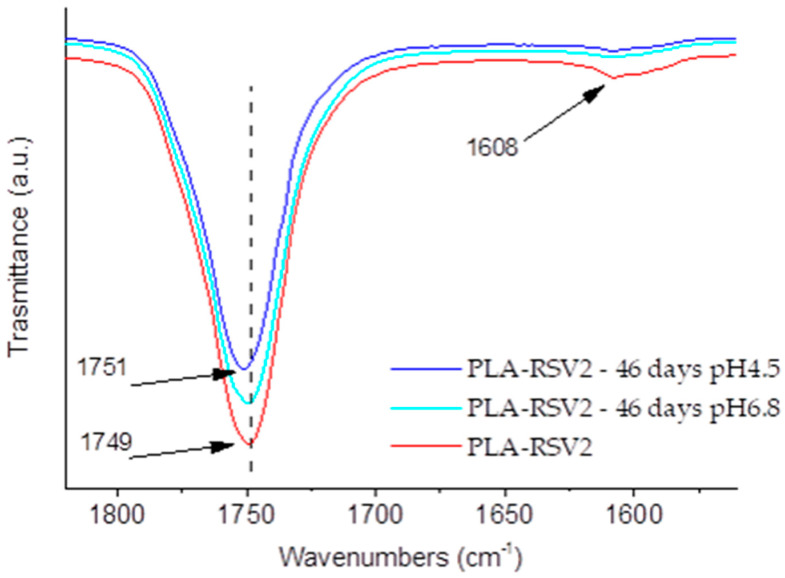pH-Responsive Resveratrol-Loaded Electrospun Membranes for the Prevention of Implant-Associated Infections

To date, the implant-associated infections represent a worldwide challenge for the recently reported bacterial drug resistance that can lead to the inefficacy or low efficacy of conventional antibiotic therapies. Plant polyphenolic compounds, including resveratrol (RSV), are increasingly gaining consensus as valid and effective alternatives to antibiotics limiting antibiotic resistance. In this study, electrospun polylactic acid (PLA) membranes loaded with different concentrations of RSV are synthesized and characterized in their chemical, morphological, and release features. The obtained data show that the RSV release rate from the PLA-membranes is remarkably higher in acidic conditions than at neutral pH. In addition, a change in pH from neutral to slightly acidic triggers a significant increase in the RSV release. This behavior indicates that the PLA-RSV membranes can act as drug reservoir when the environmental pH is neutral, starting to release the bioactive molecules when the pH decreases, as in presence of oral bacterial infection. Indeed, our results demonstrate that PLA-RSV2 displays a significant antibacterial and antibiofilm activity against two bacterial strains, Pseudomonas aeruginosa PAO1, and Streptococcus mutans, responsible for both acute and chronic infections in humans, thus representing a promising solution for the prevention of the implant-associated infections.
Keywords: antibiofilm; bioresorbable membrane; electrospinning; phytochemicals; polylactic acid; resveratrol.
Bibliografia: Peixoto C.D., Almas K. The implant surface characteristics and peri-implantitis. An evidence-based update. Odontostomatol. Trop. 2016;39:23–35
